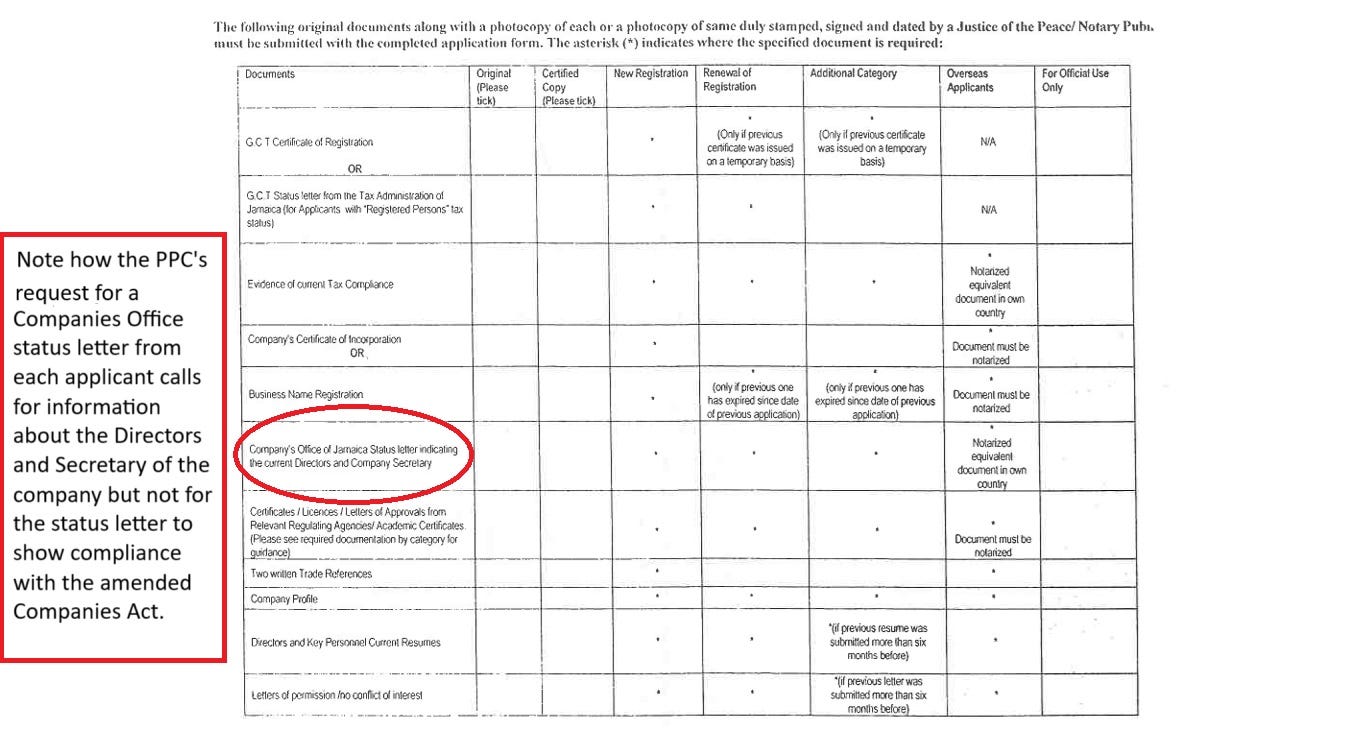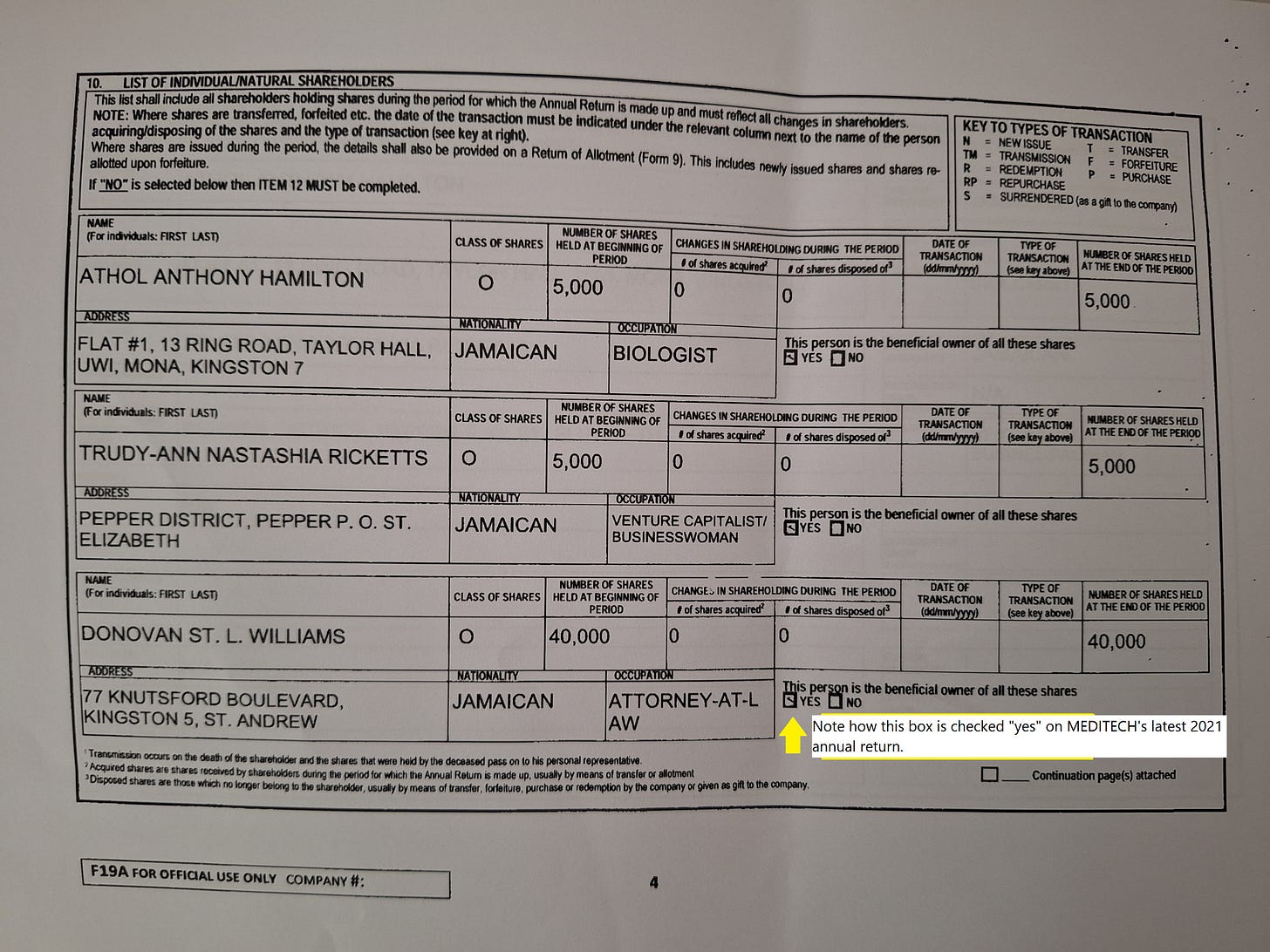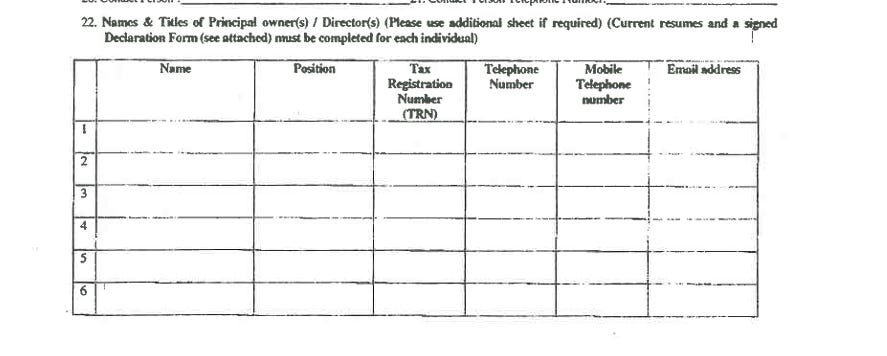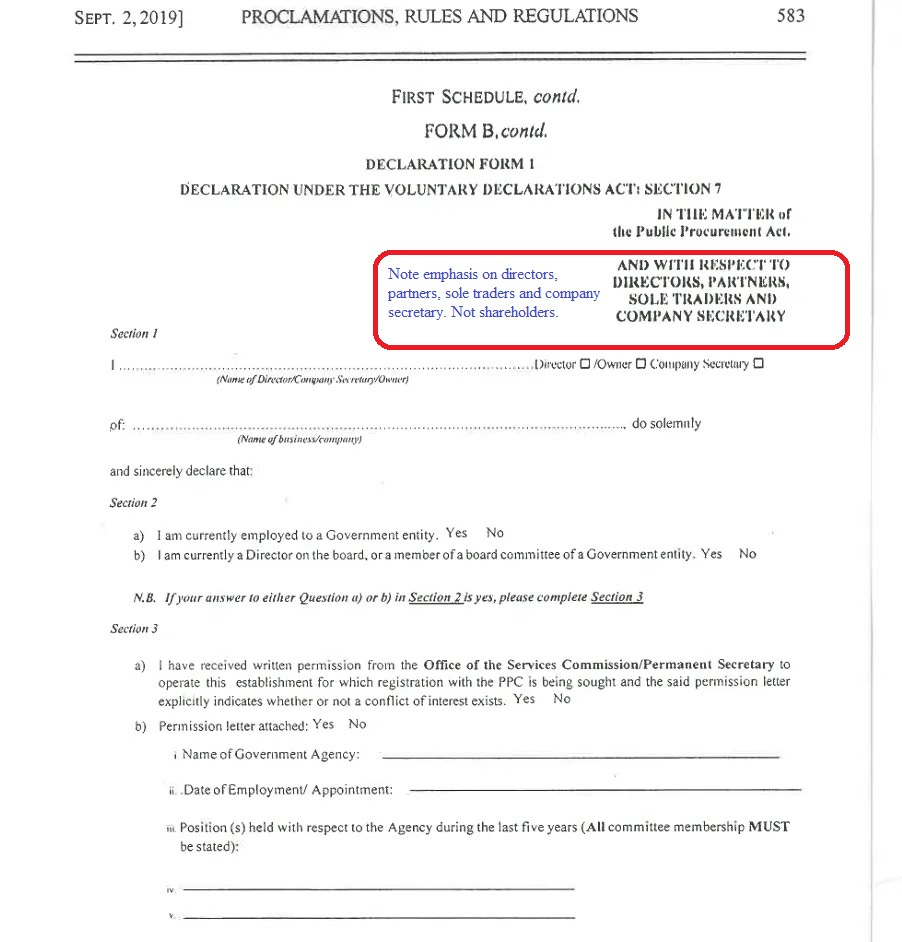MEDITECH's Lack of Beneficial Ownership Return Triggers Probe By Entity That Registers and Renews Government Contractors
SUBSCRIBER CONTENT
The Public Procurement Commission (PPC) says it has now “commenced an investigation” following questions from 18° North about how it could have earlier this month renewed the registration of Medical Technologies (MEDITECH) Limited to be able to continue getting government contracts—seemingly in contravention of its own law.
18° North had previously reported that MEDITECH - at the center of a controversy over a $31.5 million (US$200,151) neurosurgical drill sold to the government’s South East Regional Health Authority (SERHA) - had received over $201 million (US$1.85 million) in public contracts between 2008 and 2020, and the drill deal awarded in 2024 suggests it had continued to get taxpayer-funded contracts past this time period.
Section 4 (3)(c) of The Public Procurement (Registration and Classification of Suppliers) Regulations, 2019 states that the Commission may renew the supplier’s registration if it is satisfied that “during the preceding registration period, the applicant has not engaged in any conduct amounting to a contravention of the Act or any other relevant law.”
And yet, the Milverton Reynolds-chaired PPC, which is the public entity that registers and renews government contractors, renewed MEDITECH’s registration for three years, effective June 2, 2025, despite a public revelation two weeks earlier that the company has a trustee shareholder, possibly violating Section 23A of the Companies (Amendment) Act, 2023, which prohibits nominee shareholders for Jamaican companies. Furthermore, MEDITECH also has no beneficial ownership form on file at the Companies Office, another potential breach. Section 377A(1)(c) mandates that companies file this return annually.

In a June 10 letter, the PPC acknowledged that the amended Companies Act forms part of the “relevant laws” but said it is “not the competent authority” to determine whether breaches of that Act have occurred. It claimed that at the time of MEDITECH’s registration renewal, the PPC had “no actionable information” confirming a breach. However, in light of the information shared, “we have commenced an investigation and remain committed to taking any necessary action in accordance with the law.”
MEDITECH’s Opaque Ownership Structure
MEDITECH's opaque ownership structure came to light following a highly-publicized press conference by Opposition Spokesperson on Health Dr. Alfred Dawes on May 20 where he accused the firm of overcharging the government for its neurosurgical drill —claims over which he is now being sued. During the press conference, Dawes revealed that MEDITECH “is owned by” Kingston Central Member of Parliament Donovan Williams, who didn’t dispute the company filings showing that he was listed as holding 40,000 of the company’s 50,000 issued shares. Instead, he said in a statement he was merely holding the shares as a “trustee” in his capacity as an attorney.
In his May 20 statement, Williams said that following the resolution of a shareholder dispute in 2022, documents had been prepared to facilitate the shares being passed to the beneficial owner - who he didn’t identify - and that removing his name as shareholder was now just a “formality.” As of June 27, however, he is still listed as the owner. In fact, on MEDITECH’s 2021 annual return - the latest on file - he is marked as the beneficial owner of the shares, which was how such information used to be reported prior to 2023, when filing a separate form became mandatory.
The other shareholders are Athol Hamilton and Trudy-Ann Ricketts, owning 5,000 shares each. The two also serve as the company’s directors, and Hamilton is the secretary.
Neither Williams, Hamilton nor Ricketts would respond to questions about the company’s structure. Williams also didn’t respond when asked when the beneficial owner form would be filed.
If MEDITECH files its Beneficial Owner Return, will the PPC care what’s on it?
On June 2, 18° North asked the PPC whether it had considered Williams’ status as a sitting MP before registering MEDITECH to be able to get government contracts after 2020, the year Williams was elected.
On June 6, the PPC wrote back stating that under the provisions of the 2019 Regulations, “the identity or status of shareholders is not a factor”, and that in the case of a company, the focus is placed on the directors, managers and secretary.
But to attorney Gordon Brown, whose experience spans more than 30 years forming companies and serving on public boards, that explanation is “irrational.” He believes the identity and status of shareholders with at least a 10% stake should absolutely be taken into account at the time of registration or when assessing for conflict of interest.
“Directors and Secretaries are mere officers of a company,” Gordon explained, while pointing out that sometimes officers can also be shareholders. “The shareholders are the real owners…It follows that the real power lies with them. If Directors won’t declare dividends to shareholders, they get booted.”
18° North also found that the PPC’s Form B, used for contractors who want to register to supply goods and services, specifically asks for principal owners or directors.
When asked about this, the PPC clarified on June 10 that if the applicant is a sole trader, the focus is on the owner, but if it’s an incorporated company - as MEDITECH is - the focus then would be on the directors, managers and secretary, “who, in law, constitute the directing mind and will of the company.”
It further explained that the PPC registers companies on the stock exchange with thousands of shareholders, and it would therefore be impractical to enquire about the status of each of them. “Therefore, where the applicant is a Company, the Commission does not, as a standard procedure, require specific disclosure of, or investigate shareholders, including majority shareholders, at the registration stage. That information would serve no useful purpose, particularly because no contract award is being considered.”
But there was no need for the PPC to investigate in this case since the information had already been broadcast on national television on May 20.
And according to the Public Procurement Act, 2015, the legislation under which the PPC was created, the PPC is responsible for promoting integrity in the public procurement process, and ensuring transparency, fairness, and equity in the registration of persons, firms and entities in the awarding of procurement contracts.
Furthermore, Section 3(g) of the 2019 Regulations allows the Commission to refuse registration if there are circumstances that are likely to — “(i) call into disrepute; or (ii) lead to the improper conduct of, the business of or execution of contracts by the applicant or an officer or employee of the applicant.”
Asked whether a sitting MP being the major shareholder of record of a company getting a government contract could be seen as a conflict of interest and could therefore fall into this category, the PPC responded that this provision refers to circumstances likely to bring into disrepute the business of or the execution of a contract by the applicant. “At the time of the most recent registration, the Commission did not receive any actionable evidence that such circumstances existed in respect of Medical Technologies (Meditech) Limited,” it said. It added that if its investigation uncovers substantiated evidence, it will take action.
Conflict of Interest Checks
The PPC’s very own Form B also requires a declaration of interest if the applicant is currently employed to a government entity, which would trigger the need to show that the applicant got written permission to operate the business seeking to get government contracts.
But even though Williams is paid through the Parliament as a MP, the form seems only to apply this disclosure requirement to directors, partners, sole traders and company secretary — not shareholders, who don’t always have the ability to sign a contract on behalf of a firm.
The PPC also pays little regard to Section 42 1(b) of the Public Procurement Act 2015 which states:
A procuring entity shall exclude a person, firm or entity from procurement proceedings if (b) the person, firm or entity has an unfair competitive advantage or a conflict of interest that would be likely to impair the integrity of the procurement proceedings.
18° North pointed out to the PPC that former SERHA Regional Director Errol Greene had said that under his watch between 2021 and August 2024, ownership checks weren’t routinely done, and that the authority relied moreso on PPC registration status before awarding contracts. But the PPC still maintained that under this section of the law, such checks are the responsibility of the procuring entity at the time of procurement and not with the PPC at the registration stage. It added that “A conflict of interest must relate to a specific procurement opportunity and cannot be presumed based solely on a person’s status as a Member of Parliament or shareholder.”
On May 22, Opposition Senator Donna Scott-Mottley released a statement criticizing the government for continuing to award contracts to MEDITECH despite its non-compliance with the amended Companies Act, having not filed a beneficial ownership form. “The public deserves transparency,” she said, “not taxes funnelled to shadowy figures or political insiders.”
But given the PPC’s stance that the identity or status of shareholders “is not a factor,” the question is: Even if the real owners were to be known, would such information really have an impact on the country’s public procurement decisions?
####
Related Stories:






